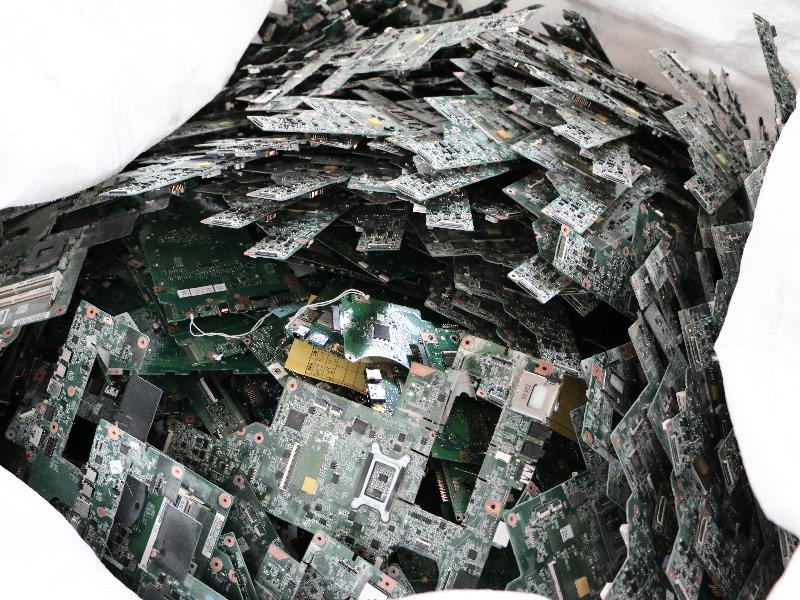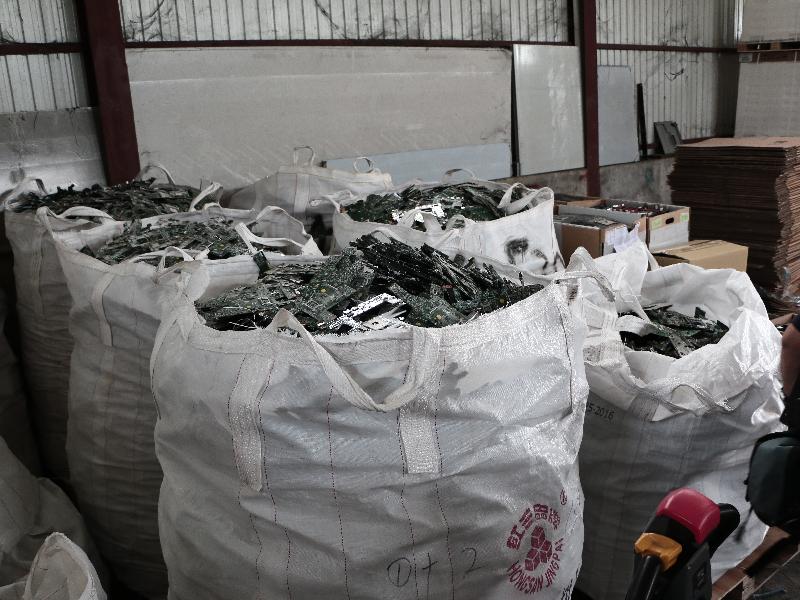Following is the transcript of remarks by the Chief Executive, Mrs Carrie Lam, at a media session before the Executive Council meeting this morning (January 29):
Reporter: Mrs Lam, on the extra funding to the Hospital Authority, how is that going to effectively help the frontline staff during the flu peak season? And secondly, there's been repeated calls to scrap the change on the elderly CSSA payment. Does that show that the Government hasn't been really listening to the opinions of the public?
Chief Executive: First of all, about the extreme workload at the public hospitals, let me first express again my deepest gratitude to all the medical, nursing, allied health and supporting staff in the public hospitals in Hong Kong. They have been shouldering extreme pressure and workload on a continuous basis and particularly so during this winter flu season, as you can see, and I have seen it because I went to visit Tuen Mun Hospital earlier this month. So, my first comment and response is I wish to thank them, every one of them.
Secondly, during the course of this extreme workload I have heard a lot of views and comments and I think most of them are very valid. For example, instead of keeping on increasing hardware hospitals and manpower, we should have a fundamental change in Hong Kong's health system to put more emphasis on primary health care and health prevention and screening so that the hospitals need not be overloaded. And there are also views that we should increase medical manpower through more training and education. I endorse all these views, but they are medium to long-term measures and they could not happen overnight, for example, changing people's culture, that you should keep yourself healthy, do more exercise, better diet and do more screening, instead of leaving until you get sick. It is a cultural and behavioural change that will take time, but we will take the lead as the Government to promote primary health care in Hong Kong.
Let's come back to the immediate measures because the pressure is very acute. I met with the Chairman of the Hospital Authority two days ago, on Sunday, after I came back from Davos. I have a better understanding of the immediate and short-term measures that the Hospital Authority is rolling out, such as expediting the procedure to recruit part-time doctors and nurses including some retirees, including streamlining the procedures, reducing the clerical and administrative work, putting in more money into the hospitals and also using what they call the special honorarium scheme in order to engage more staff. All these are valid measures which the Hospital Authority will undertake and which the Government supports. In order to ensure that all these short-term measures could be implemented more smoothly and effectively, I am announcing now, that like last year, the Government has reserved a one-off allocation of $500 million that the Hospital Authority can come back any time to apply for the use of funding in order to effect those measures.
The second subject you raised about the Comprehensive Social Security Assistance Scheme, the change that we have introduced this time is the result of extensive discussions back in 2014, resulting in a report in 2015 about Hong Kong's population policy. As a result of those recommendations in the Population Policy report, with support from the community, we have introduced a lot of measures to extend people's working life. For example, newly recruited civil servants will retire at 65, existing civil servants recruited after the year 2000 can opt to work till 65, and we extended the retirement age of a type of security guards by law from 65 to 70. All these are measures in line with that policy direction, that because of longevity, life expectancy and a shortage in Hong Kong's labour force, we should help people to extend their working lives so that they can be kept in the labour force for a longer period of time. Similarly, for enhancing the protection of retirees, that is those who are no longer able to work, we have introduced the Old Age Living Allowance, and last year we introduced the enhanced Old Age Living Allowance, which is now received by some 480,000 elders over 65.
So this is almost the final measure in that package, that is about the CSSA system, which still classifies people aged 60 to 64 who are able-bodied – I must stress they are able-bodied, they are not disabled, they are not ill health, but they are able-bodied people aged 60 to 65 – as non-able bodied, not able to work. The then working party felt that this was not in line with the policy direction so a change should be introduced at a suitable time. The change was announced to take place on February 1 this year after it has gone into the January 2017 Policy Address and into the Budget for 2018-19. I hope that people understand the policy rationale behind this measure. It is not about cutting the expenditure of CSSA. It is not about not helping ageing people. It is quite the opposite – we want to help these able-bodied, 60 to 64, to be able to remain in the labour force for as long as possible.
But I would confess that in the actual implementation we could have done better in terms of making sure that all the necessary support measures are in place, the financial assistance would not be too different from what they are receiving if they were under an ageing recipient category. So over the last two weeks we have been introducing additional measures, and during my meeting with seven members of the Legislative Council yesterday afternoon, I reiterated our intention to continue to improve these measures. I have outlined three areas which we will do within this year, and if they want us to do it faster, I would work with the Secretary for Labour and Welfare to expedite the review. One is if we said that we want to encourage people to work, then we need to review the existing Integrated Employment Assistance Programme for Self-reliance to see whether they – there are 41 teams run by non-governmental organisations – whether they are effective in providing that employment support. We have extended their contract till the end of March next year, so we have a period that we will review, but meanwhile they will continue to provide the support to the 60 to 64 CSSA recipients.
The second measure is to provide incentive for people to work while on CSSA. Without cutting back CSSA rates we have what we call disregarded earnings, in other words, they could keep what they earn up to $2,500 under certain formula while still on CSSA. But this amount was set maybe 20 years ago, so it's also time to review the maximum ceiling of disregarded earnings and how disregarded earnings are to be calculated.
The third very specific measure is we promise that in the review we will look at each and every of the special grants and supplements to see whether some of these should be provided to the 60 to 64, or not only to the 60 to 64 because now that they become able-bodied adults. I promise, and I thought some members at the meeting were quite pleased, that once we have looked at these special grants and supplements, they may be extended to all able-bodied. So, it's not just 60 and 64, maybe 55 or 58. An able-bodied person on CSSA should also be eligible for that extra supplement or special grant.
All in all, we are very committed to providing help to the elderly, and what we call able-bodied, capable-to-work people on CSSAs. As you know the unemployment rate now is 2.8 per cent which is the lowest in the last 20 years, this is, in a way, good timing to introduce a policy change or measures to encourage and support people to go back to the labour force, but of course we are not forcing or coercing. If the 60 to 64 recipient has other factors which could not be catered for by a policy, then they will be looked after individually by case workers on a discretionary basis.
(Please also refer to the Chinese portion of the transcript.)

